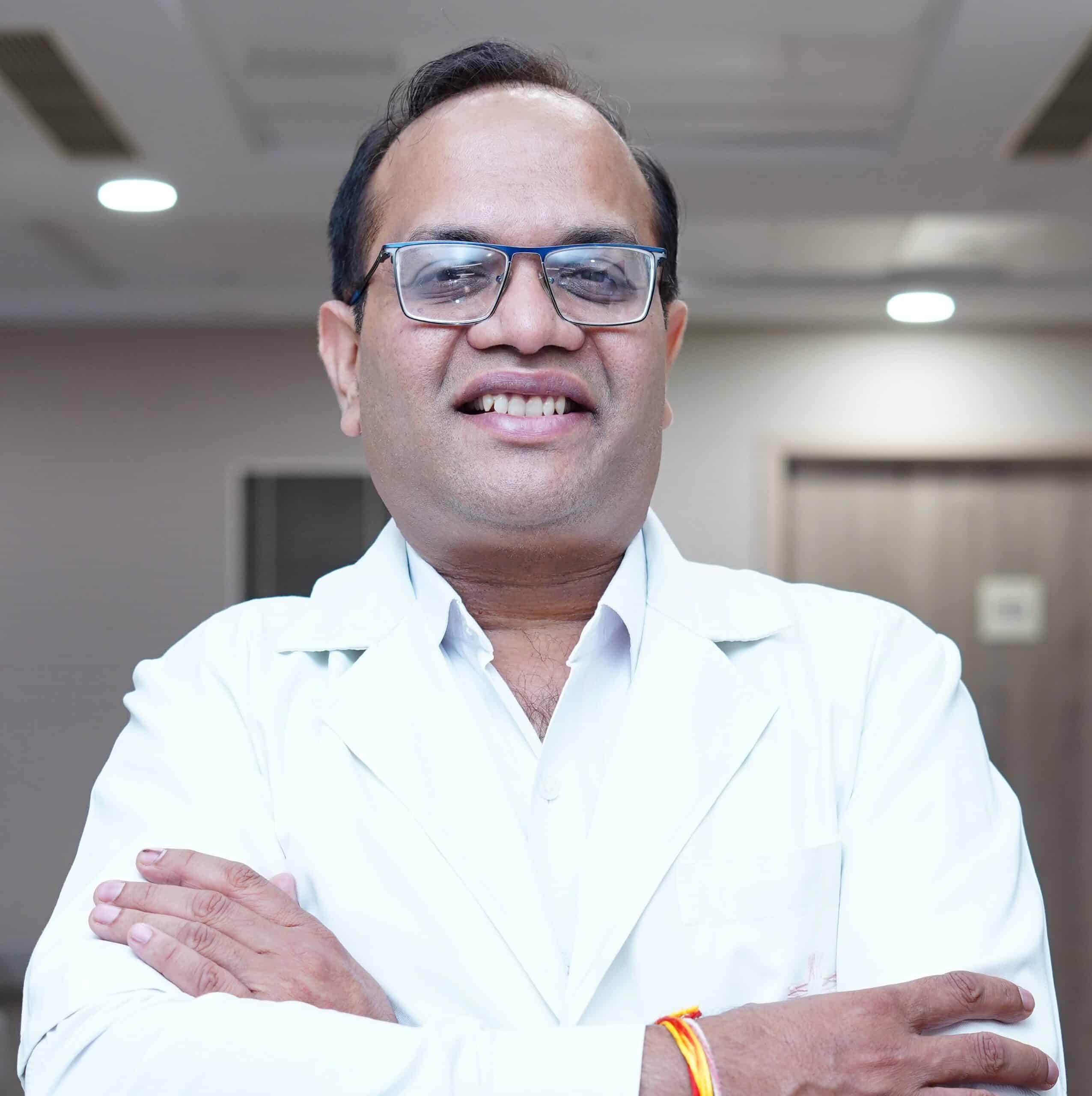- Home
- /
- Treatments
- /
- Rectal Cancer Treatment in Noida
Rectal Cancer Treatment
In Noida
Rectal cancer affects the last few inches of the large intestine and causes rectal bleeding, diarrhoea, abdominal pain, constipation, etc. Certain diseases and conditions also increase the risk of rectal cancer like inflammatory bowel disease and Crohn’s disease.
For expert diagnosis and treatment of rectal cancer, consult with Best Cancer Specialists in Delhi NCR at CK Birla Hospital.
Rectal Cancer
What is Rectal Cancer?
Rectal cancer is a slow-growing cancer that forms on the inner lining of the rectum. It can be caused by old age, eating processed meats, obesity, smoking, family history, and more. Timely and early treatment is crucial to manage symptoms, prevent complications, and avoid spreading to other parts or organs.
What are the Types of Rectal Cancer Treatment?
- Surgery: Invasive procedure involving removal of the cancerous tumour, or removing a part or all of the rectum.
- Radiation Therapy: Treatment through high-energy rays to destroy cancer cells.
- Chemotherapy: Cancer cells are destroyed through anti-cancer drugs.
- Immunotherapy: Treatment procedure involving using the body’s immune system to fight cancer.
- Targeted Therapy: Involves targeting specific cancer cell mutations and blocks the abnormal proteins that lead to cancer growth.
What is the Average Cost of Various Rectal Cancer Treatments?
- Surgery: Costs approximately between ₹3,00,000 to ₹6,00,000
- Radiation Therapy: Can cost anywhere from ₹2,50,000 to ₹4,00,000
- Chemotherapy: The estimated cost is between ₹80,000 to ₹2,00,000 for multiple cycles
- Immunotherapy: Is expected to cost between ₹2,00,000 to ₹3,50,000 per treatment cycle.
- Targeted Therapy: Ranges between ₹2,50,000 to ₹3,50,000
Please note that these figures are approximate and can vary based on individual circumstances, hospital facilities, and additional services required.
Any Complications Associated with Untreated Rectal Cancer?
- Bleeding: Chronic blood loss can lead to anaemia, fatigue, and weakness.
- Intestinal Obstruction: Blocking of the rectum can cause constipation, pain, etc.
- Intestinal Perforation: Growing tumour can erode through the rectal wall (tear in intestine).
- Fistula Formation: Abnormal connection between the rectum & other organs can develop.
- Chronic Infection: Life-threatening infections due to fistulas and perforations.
Meet Our Doctor

Preventive Measures Against Rectal Cancer
- Limit Red & Processed Meats: Processed & red meats increase the risk of rectal cancer.
- Maintain a Healthy Weight: Obesity is a significant risk factor for rectal cancer, regularly exercise & keep weight under control.
- Avoid Smoking & Alcohol Consumption: Smoking & alcohol consumption increase the risk of rectal & other types of cancer.
- Treat Inflammatory Bowel Disease (If Applicable): Conditions like IBD and Crohn’s disease increase the risk, thus necessitating managing the symptoms.
- Get Screened Regularly: Get colonoscopy, stool tests, and other tests done to detect polyps early and prevent cancer.
Diagnosis of Rectal Cancer
- CT Scan: To identify tumour size and spread of cancer.
- MRI: For detailed image of the rectum and surrounding tissues.
- Endorectal Ultrasound: To detect how deep the tumour has invaded the rectal wall.
- CBC: To check for red blood cell levels to identify anaemia.
Pre-Treatment/Surgery Instructions:
- Do not eat or drink for 6-8 hours before the surgery.
- Arrange for someone to drive you back home.
- Follow the doctor’s instructions for medication.
- Avoid smoking and consuming alcohol.
Post-Treatment/Surgery Instruction
- The patient will be observed for a few hours post-surgery.
- Change dressing as instructed by the doctor.
- Follow-up appointments will be scheduled to monitor recovery.
- Avoid strenuous activities and follow a balanced diet to aid recovery
Recovery After Rectal Cancer Treatment:
Recovery time depends on the type of treatment or surgery performed. Generally, patients can expect:- Initial recovery may take somewhere between 2 weeks to 4 months.
- Full recovery and return to normal activities within 6 months to 1 year.
Be a super-mom, stay informed about pregnancy health updates with our weekly newsletter
[contact-form-7 id=”16292″ title=”Subscribe”]
FAQs Around Rectal Cancer
How to prevent rectal cancer?
Rectal cancer can be avoided by following a healthy diet, avoiding smoking & drinking, maintaining a healthy weight, getting regularly screened, etc.
How does rectal cancer happen?
Rectal cancer can be caused by various factors including old age, eating processed meats, family history, obesity, smoking, etc.
Is rectal cancer more serious than colon cancer?
Yes, rectal cancer is considered more serious than colon cancer considering its location.
What foods should be avoided with rectal cancer?
Processed & red meats, food high in fats, fried food, carbonated beverages, alcohol, etc should be avoided with rectal cancer.
When should you suspect rectal cancer?
Changes in bowel habits, blood in stool, weight loss for no reason, and feeling tired are all early symptoms of rectal cancer.
Who treats rectal cancer?
A team of doctors usually treat rectal cancer including, a colorectal surgeon, gastroenterologist, medical oncologist, and radiation oncologist.

